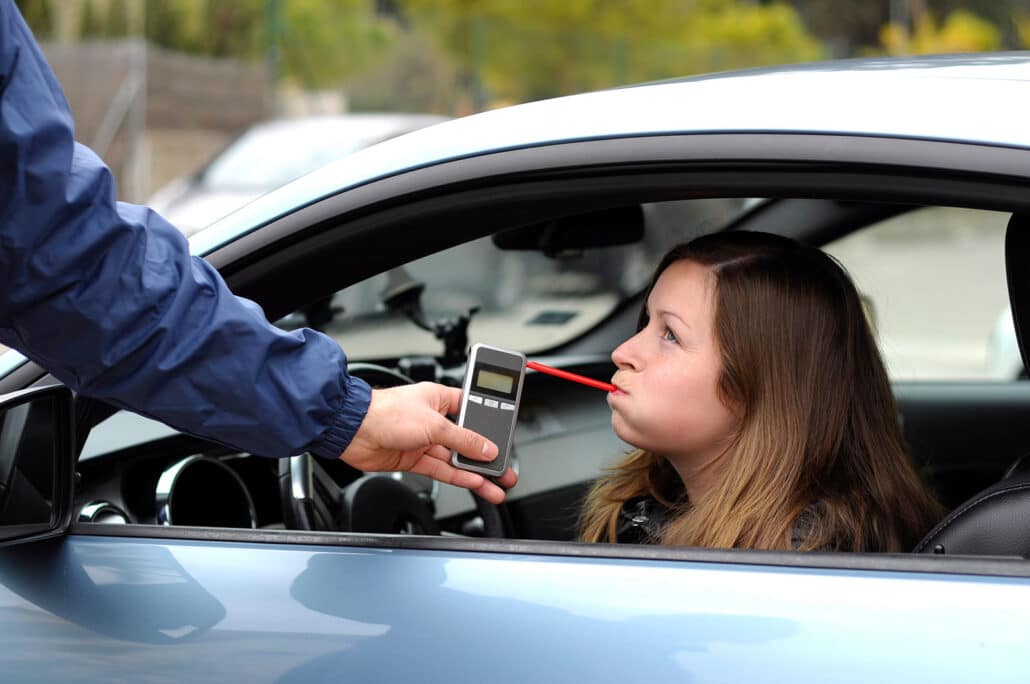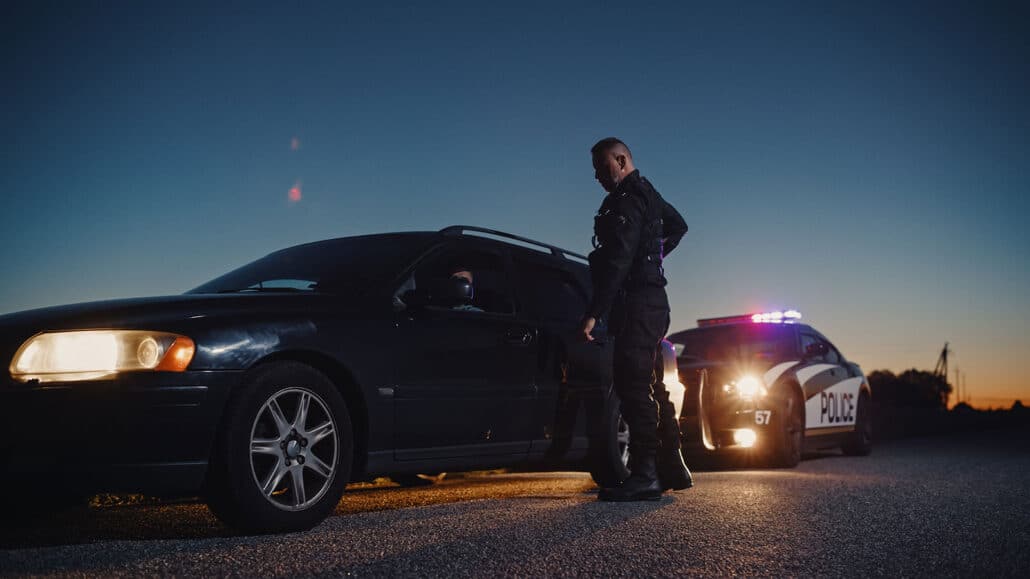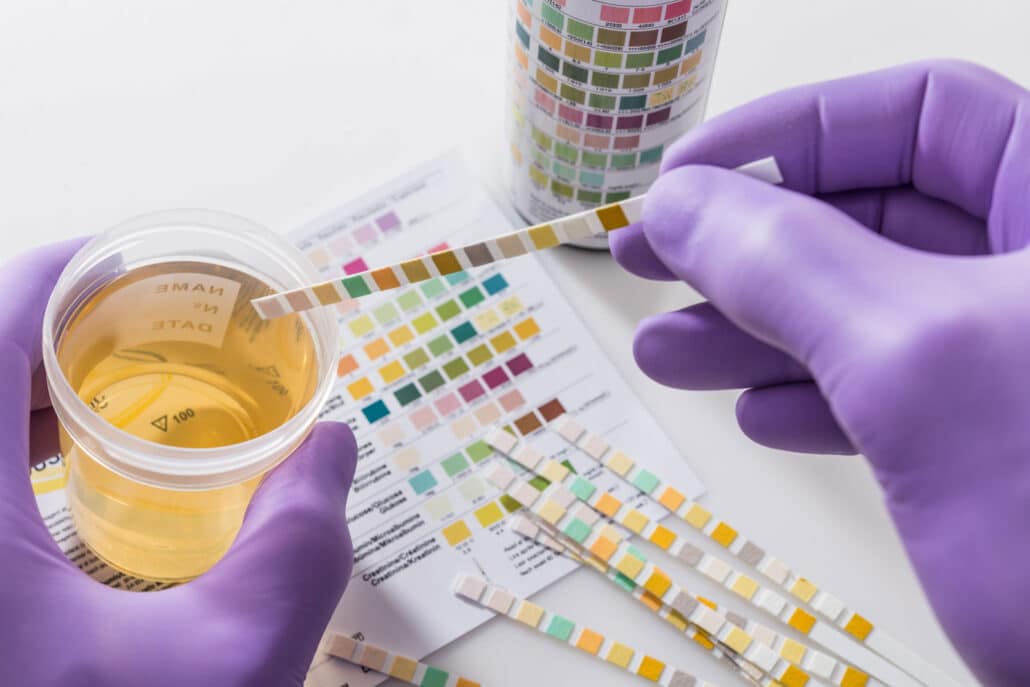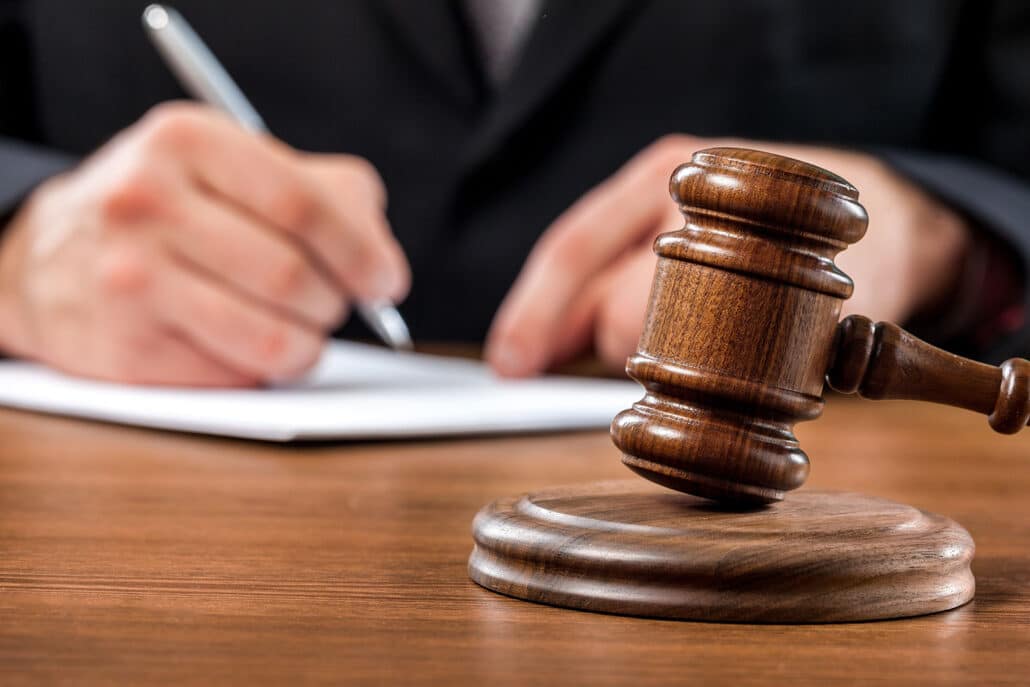If you are a person of interest in a criminal case, there is a chance that you will be given a drug and alcohol screen. The screen will look for evidence of illegal drugs such as marijuana, cocaine, or other controlled substances in your system. This might include THC (the active component in cannabis), methamphetamines, opiates, or other types of drugs. In many cases, these tests are conducted at the scene of a traffic stop or other police interactions when law enforcement officers have reason to believe that you’re under the influence of drugs or alcohol, posing a risk to public safety.
TL;DR: Police use breath, urine, blood, saliva, or hair tests, depending on the situation, to detect drugs or alcohol.

Table of Contents
- 1 Why Police Conduct Drug Tests
- 2 How Police Can Get Permission to Conduct Drug Tests
- 3 How Do Police Determine If You’re Under the Influence?
- 4 How Do Police Drug Test You?
- 5 Will Anyone Else See the Results of a Police Drug Test?
- 6 What If You’re Merely in the Vicinity of Controlled Substances?
- 7 What Happens If You Refuse a Drug Test?
- 8 If You Know You’ll Test Positive
Why Police Conduct Drug Tests
The Constitution says that there must be probable cause to charge you with a crime. A positive drug test is typically seen as sufficient to establish probable cause in a case. Tests typically only take a few minutes and are relatively accurate, but in some cases, a sample might be sent to a police department lab for further testing. It’s also possible that substances found in your vehicle, in your backpack, or otherwise in your control might be sent for testing.
How Police Can Get Permission to Conduct Drug Tests
There are two main ways in which a police officer can get permission to conduct a drug test. First, you may be asked for permission to take a sample of your blood, hair, or urine. If you don’t voluntarily submit to a test, you may be compelled to do so after an officer obtains a warrant to obtain a sample.
There is also a chance that you’ll be compelled to give a sample under threat of penalty if there is reason to believe that a crime has been committed. For instance, if there is reason to believe that you’re currently under the influence, you may have to submit to a test.
How Do Police Determine If You’re Under the Influence?
To determine if you’re under the influence of alcohol, an officer can use a Breathalyzer device to determine your blood alcohol content (BAC). If your BAC is above .08%, the law assumes that you are intoxicated. However, there is no way to tell if you’re under the influence just because you’ve tested positive for marijuana or cocaine in your system.
Therefore, law enforcement will consider several variables to determine if you are likely impaired by a controlled substance. For instance, a higher concentration of a drug in your system may indicate that you’ve used it more recently. In addition, there are telltale signs of impairment, such as bloodshot eyes, slow reaction time, or an inability to stand or speak clearly. Officers may conduct field sobriety tests to assess your coordination and balance.
Of course, there may be other explanations for bloodshot eyes or a lack of balance, and these other explanations can be brought up in court. It’s also possible that a test was performed improperly or otherwise gave a false positive for drugs in your system.
How Do Police Drug Test You?
In most cases, police will test for drugs in your system by examining a blood sample. The sample might be taken by paramedics or other medical professionals called to the scene of a wreck or other police investigation. You may also be required to go to the hospital under a police escort to have blood drawn from your body.

A urine sample might also be used to determine if there are any illicit drugs in your system. However, there are a couple of drawbacks to this type of screening method. First, it can be harder to compel a urine sample based on how state and federal laws have been interpreted. Next, it may be possible to dilute a urine sample by drinking a lot of water, which may make it harder to determine if anything is actually in your system. Therefore, authorities typically opt for a blood test unless it’s physically impossible to do so.
Finally, authorities may opt for either a saliva test or a hair follicle test. The main benefit of these tests is that it’s fairly easy to get a robust sample quickly and relatively painlessly. However, follicle testing is generally best for drug screens that want to know if there are any residual drugs in your system that may have been ingested weeks or months ago. Therefore, this type of screen will most likely be ordered by a judge during a trial or after you have been sentenced. Of course, it may be possible to challenge the validity of any drug screen before or during a trial or as part of an appeal if you’re convicted of a crime.
Types of Tests Used by New Jersey Police
- Field Sobriety Tests (FSTs): Assess coordination and balance to detect impairment but do not confirm drug use.
- Breathalyzer Tests: Measure blood alcohol content (BAC) in DUI cases; results from station-based devices (e.g., Alcotest 7110/9510) are court-admissible.
- Saliva (Oral Swab) Tests: Used in DUI stops to detect recent drug use (up to 48 hours); less reliable than blood tests.
- Urine Tests: Common for probation and post-arrest drug screening, detecting past drug use but not current impairment (up to 30+ days for THC).
- Blood Tests: Highly accurate, used in serious DUI cases or after accidents; require a warrant unless consent is given (detects drugs within hours to days).
- Hair Tests: Detect long-term drug use (up to 90 days), but do not indicate recent impairment; often used in probation or employment cases.
When Do Police Drug and Alcohol Test You in New Jersey?
Police officers may conduct drug tests in the following situations:
- DUI Traffic Stops – If an officer suspects you are under the influence of drugs, they may conduct a field sobriety test, saliva swab, or blood test.
- Probation or Parole Supervision – If you are on probation or parole, you may be required to take random drug tests.
- Car Accidents Involving Injuries – If you are involved in a serious accident, police may test you for drugs and alcohol.
- Workplace & CDL (Commercial Driver’s License) Drug Testing – Commercial drivers in New Jersey must undergo drug tests under federal DOT regulations.
Will Anyone Else See the Results of a Police Drug Test?
If you have reached the age of majority in your area, other parties won’t have access to drug test results by default. However, if you’re a minor, your parents or guardian might have the right to ask for those results.

Regardless, your employer, college, or other outside party generally cannot compel you to release the result of a drug test. The only way this would happen is if a judge ordered the results to be made public or made available to an interested party.
Medical privacy laws generally apply in the event that a drug screen reveals the presence of lawfully prescribed medication. This means that your employer or other parties couldn’t take action against you simply for using it. If you’re an athlete, the use of an otherwise lawful substance might result in a ban or other action by the appropriate athletic governing body if that substance is prohibited for use during games.
What If You’re Merely in the Vicinity of Controlled Substances?
Let’s say that you were at a party where other people used cocaine and residue got on your hands or in your mouth. In such a scenario, it’s possible that you could test positive in the future. However, authorities will typically ask if you have been around others who have used illegal substances or if there is any reasonable explanation for why you tested positive. If you can back up your story with sufficient evidence, you may be released without facing any charges.
What Happens If You Refuse a Drug Test?
In most cases, if you refuse a drug test, you’ll simply be compelled to do so after an officer obtains a warrant. Whether there are any automatic penalties for a refusal depends on state law and the circumstances under which you’re being asked to take a test.
For example, if you refuse to take a Breathalyzer test, implied consent laws generally require that your driver’s license be revoked for up to 18 months. These laws may also apply if you refuse to submit to testing because an officer thought that you were under the influence of drugs.
Refusing to take a drug test may have both positive and negative effects on the case against you. Typically, the fact that you refused a test can be used as evidence in court, which may make it easier for a prosecutor to obtain a conviction. However, it’s also possible that refusing to take a test may make it difficult or impossible for the government to get the evidence it needs to convict.
Therefore, it’s critical to consider whether the consequences of refusing outweigh the potential downside if you’re convicted in your case anyway. An attorney may be able to talk about the potential consequences of your decisions and how they might impact your future. If you need legal advice, consider seeking a free consultation with a criminal defense lawyer.
Refusing a Police Drug and Alcohol Test in New Jersey
DUI Traffic Stops (Implied Consent Law)
If you refuse a chemical test (breath, saliva, blood) after a DUI arrest, you face:
- 1st offense: License suspension (7-12 months) + fines
- 2nd offense: 2-year license suspension
- 3rd offense: 10-year license suspension
Probation or Parole Drug Testing
Refusing a drug test while on probation or parole could lead to:
- Revocation of probation/parole
- Increased supervision
- Jail time

How to Challenge a Police Drug Test in New Jersey
If you test positive for drugs but believe the result is inaccurate, you may have legal options:
- Request a Retest: If a urine test is faulty, you can request a blood or hair test for confirmation.
- Prove a False Positive: Certain medications and medical conditions can cause false positives.
- Challenge the Testing Process: If the test was improperly administered or violated your rights, your lawyer may challenge it in court.
If You Know You’ll Test Positive
A positive drug test might result in negative consequences such as jail time or a fine. However, you may be allowed to enter a diversion program after which your conviction will be sealed or dismissed entirely. Testing positive may be the motivation that you need to finally admit that you have a problem and get the help that you need for it.
Even if you aren’t facing jail or prison time as a result of a drug or alcohol problem, it can still be in your best interest to get help. The team at Long Island Treatment Center will work with you to identify triggers, help you find employment, or take other steps to build a foundation that can help you obtain and retain your sobriety. Get in touch with us today to learn more about our programs, our pricing structure, or how you can enroll in an inpatient or outpatient program today.
Published on: 2024-12-31
Updated on: 2025-04-26

